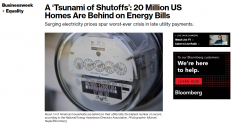More to add on this: employers say they want STEM but they actually don't. They want STEM . Software and IT #1, engineering #2, everything else is mediocre and biological sciences - the most popular STEM field - is worse than psychology or business. You are 100x better off majoring in some shit like literature and clawing your way up a basic office 'analyst' job than doing biology.Well, this is exactly what happened with East Asia, and frankly in general they are still doing far better than US when it was focused on liberal arts. So yes, even if you have to pressure people to study STEM, it will still deliver some tangible results.
another example of how employers want STEM: for someone that works in semiconductor, I actually don't talk to EEs very often. People I meet most commonly have degrees in chemistry, chemical engineering, materials science, physics, etc. why is that? well, one is that this is more materials based field for equipment/precursor and the like, but also because EEs have a choice to work an office software job that makes 50% more money and doesn't require physical work. You need to be able to lift 50 lbs with unassisted to work at Hitachi as an etch engineer and this isn't exactly uncommon.
STEM not STEM. Or, a better abbreviation: Software, Technology, Engineering, Management.

